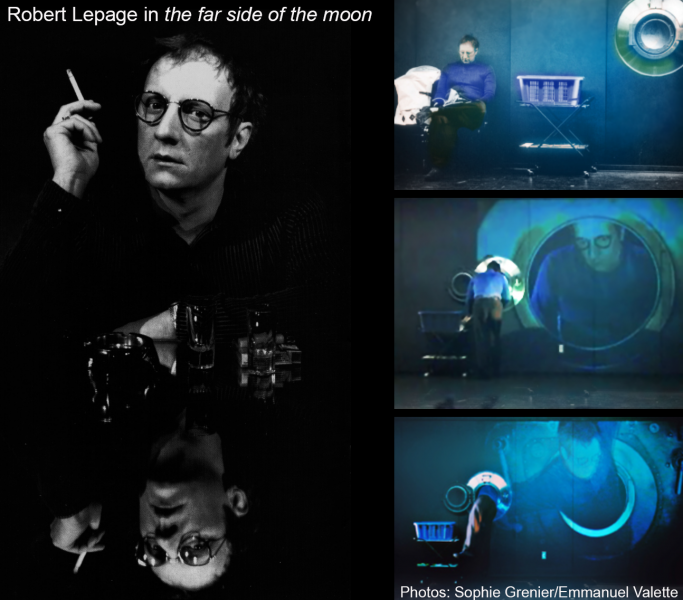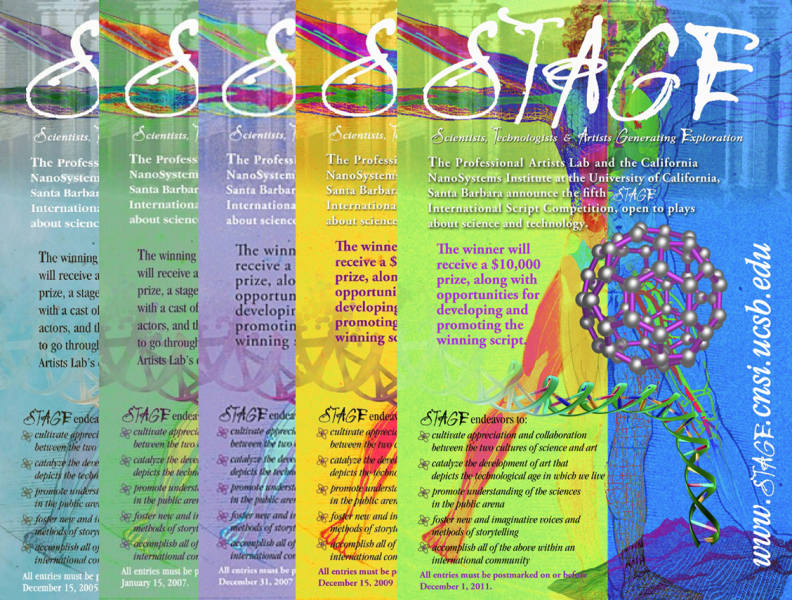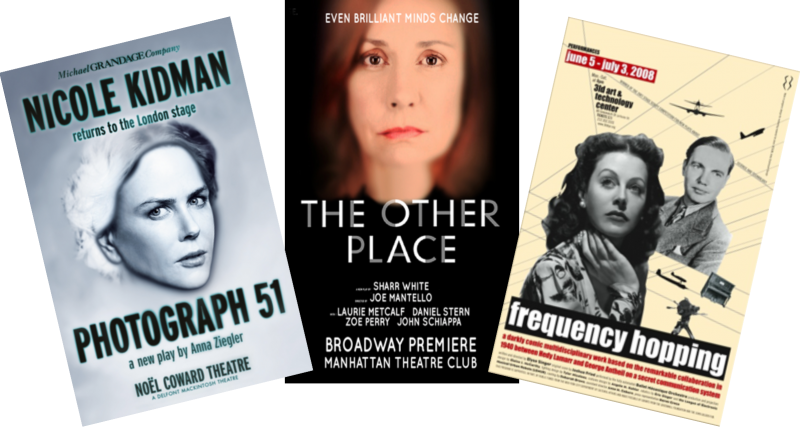What Is STAGE?
Mission
Exploratory Focus
Work Process
History
STAGE began out of a conversation with a prominent scientist, who pointed out that many Nobel Prizes in science have been awarded for accidents - that is, serendipitous discoveries. For example, scientists often set out to explore a hypothesis, but find it's not supported by experimental data. Something unexpected in the data may pique their interest, however, and further probing leads to a new discovery.
This led to some questions: Was it possible to apply aspects of the scientific model to the arts? Could one establish an artistic arena in which the freedom to improvise and follow the emerging "unexpected data" governs the creation of new theatre work?
At about this same time, a production of the far side of the moon, by Canadian artist Robert Lepage, had an equally profound effect on shaping the direction of STAGE. In this work, multi-media was absolutely integral to the play and the storytelling. Witnessing such synergy between technology and story, reflected meaningfully in a work of art, was thrilling.

Out of this, the vision for STAGE came into focus: a laboratory in which artists create work relevant to the lives we lead - lives influenced by sophisticated technological and scientific advances - and one in which the happy accident is always a welcome, engaged participant.
The STAGE International Script Competition
STAGE was launched at, and continues to collaborate with, the California NanoSystems Institute at the University of California, Santa Barbara (UCSB). It began as the STAGE International Script Competition for the best new play about science and technology.

A majority of the winning plays went on to have multiple productions; one has been optioned for the screen by award-winning director/writer/producer Darren Aronofsky and Oscar-winning actor Rachel Weisz. A complete history of the Competition may be found here.

In less than five years, the Competition's successful partnership among artists and scientists expanded to include activities well beyond the scope of the Competition. Such growth gave rise to two questions: how can we give a louder voice to stories about science and technology, and how can we implement a more collaborative work process through which to accomplish this? The answer to both queries was to build a laboratory, or "collaboratory," for creating new theatre and film work. Science and technology play prominent roles in the stories we tell, as in how we tell those stories on stage and screen.
In 2013, STAGE was invited to become a part of the University of Chicago's new Institute for Molecular Engineering, now the Pritzker School of Molecular Engineering (PME), to lead one of the PME's "themes" or areas of concentration: that of the Arts, Sciences and Technology.
